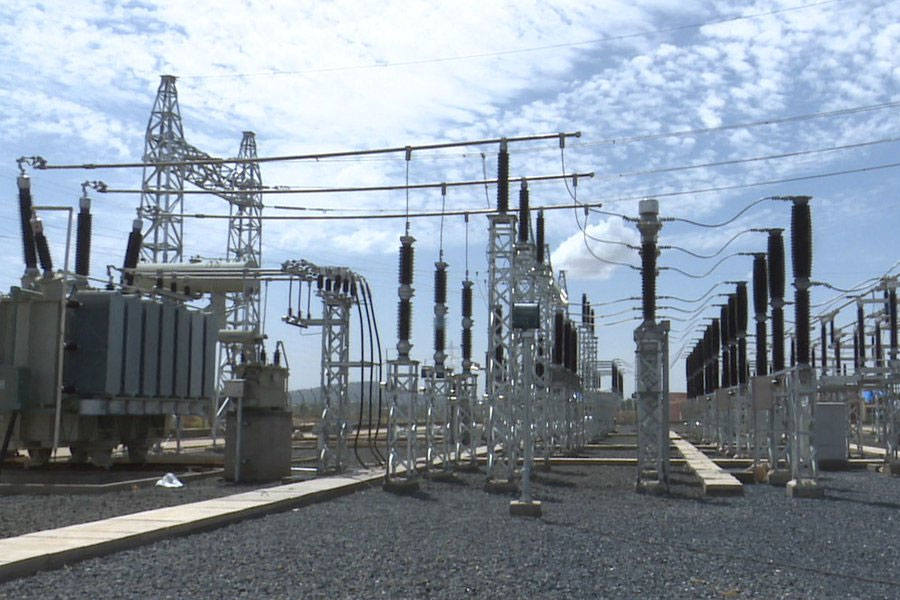
Fortune News | May 09,2020
Nov 27 , 2021
By BERSABEH GEBRE ( FORTUNE STAFF WRITER )
The Ethiopian Roads Authority (ERA) has lifted a ban on Tsehay Insurance S.C. preventing it from issuing advance payment and performance guarantee bonds for contractors ERA hires.
The move comes after the insurance firm paid a settlement of 4.7 million Br to the Authority for an advance payment guarantee bond it had issued to Akir Construction more than seven years ago. The construction company was incorporated in 2004 with Awetahegn Kiros as a major shareholder. A significant player in the construction industry for two decades, Akir was awarded a contract to construct a 59Km road from Sembo to Shola Gebeya in the Amhara Regional State in 2014. The project was initially projected to cost 663 million Br, scheduled to be completed in three years.
Tsehay issued an advance payment guarantee bond for the contractor. These bonds cover from 10pc to 20pc of the project cost in value and are designed to protect project owners from default risks by the contractor.
The start of construction awarded to Akir Construction was delayed by two years. Its managers had blamed disputes over the right of way by residents, forcing the Authority to extend the deadline to 2019. As the project progressed, the value of the advance payment guarantee issued in favour of Akir Construction dropped.
“We've been renewing the guarantee based on the contractor’s performance,” said Kassa Lisanework, CEO of Tsehay Insurance, which netted profits of 32.8 million Br last year.
However, Akir Construction stopped the work in January 2019 while the project was 94pc complete. The Authority demanded Tsehay to pay out the bond, an issue of contention between the insurer and the ERA ever since. Tsehay Insurance, along with four other insurance companies, was debarred by the Authority in March this year. Tsehay's managment had asked leaders of the Association of Ethiopian Insurers to negotiate with the ERA on its behalf, two months after the decision of the ban was made.
The ban was lifted after Tsehay paid ERA earlier this month, Ashchalew Asfaw, legal director at the Authority, disclosed to Fortune.
The Akir Construction saga is not the only one involving Tsehay Insurance and the Authority, the latter operating with a capital budget of 66.6 billion Br in the current fiscal year.
The performance guarantee Tsehay Insurance provided to Kif Construction, which was hired to complete part of the road between Mazorai and Durki but has failed to do so on schedule, is an outstanding issue with the Authority. However, discussions are ongoing, according to Kassa.
"There are issued we need to sort out," Kassa told Fortune.
Disputes over guarantee bonds have become regular, leading the Authority to debar five insurance firms and seven commercial banks from issuing bonds earlier this year. Bunna, Lion, Abay, Berhan and Tsehay were insurers on the receiving end. The banks included the Cooperative Bank of Oromia and the state-owned Commercial Bank of Ethiopia (CBE), though these have since been reinstated.
Insurance companies can only issue conditional guarantee bonds, payable upon proof of breach of the contract terms. It was a practice instituted in 2004 after the insurance industry was exposed to high risks with unconditional guarantees, which are payable on demand. Regulators at the central bank brought the unconditional bonds to an end, seeing an alarming increase in claims.
Banks can issue both conditional and unconditional guarantees.
Financial institutions issuing these bonds need to hold sufficient collateral to shelter themselves from risk, says Abebe Dinku (Prof.), construction materials and management chair at the Addis Abeba Institute of Technology.
Most insurance firms do not require collateral from construction companies while issuing demand securities.
“We assess their track record and performance,” said the CEO of Tsehay Insurance.
However, the same does not hold for everyone in the industry. Nib Insurance requires collateral covering 50pc to 100pc of the bond amount to issue a guarantee to contractors below grade four, according to Zufan Abebe, CEO of Nib Insurance.
Nonetheless, disputes between insurers and the Authority often end up in court.
A legal battle between ERA and United Insurance was fought for seven years over a performance guarantee bond issued on Tibeb Construction's behalf. The case went to the Supreme Court before United paid out 55 million Br to the Authority in January 2021, marking one of the largest settlements ever paid by a private insurance company in Ethiopia.
“The disputes arise mostly due to a lack of awareness about the terms and conditions of demand guarantees,” says Zufan.
Nib Insurance has also been involved in legal wranglings with the Authority.
Yehualashet Tamiru, an adjunct lecturer at Addis Abeba University, agrees with Zufan.
“It might be difficult to grasp the terms, especially when it comes to conditional performance bonds," he said.
Intended to bridge the awareness gap, the Association of Ethiopian Insurers offered a three-day training for officials of the Authority last week, given by experts from the Africa Reinsurance Corporation, based in Nigeria
PUBLISHED ON
Nov 27,2021 [ VOL
22 , NO
1126]

Fortune News | May 09,2020

Radar | Jul 20,2019

Radar | Dec 10,2018

Fortune News | Sep 10,2021

Commentaries | Sep 17,2022

Fortune News | Apr 09,2022

Agenda | Aug 18,2024

Radar | Dec 10,2022

Fortune News | Sep 21,2019

Viewpoints | Dec 30,2023

Dec 22 , 2024 . By TIZITA SHEWAFERAW
Charged with transforming colossal state-owned enterprises into modern and competitiv...

Aug 18 , 2024 . By AKSAH ITALO
Although predictable Yonas Zerihun's job in the ride-hailing service is not immune to...

Jul 28 , 2024 . By TIZITA SHEWAFERAW
Unhabitual, perhaps too many, Samuel Gebreyohannes, 38, used to occasionally enjoy a couple of beers at breakfast. However, he recently swit...

Jul 13 , 2024 . By AKSAH ITALO
Investors who rely on tractors, trucks, and field vehicles for commuting, transporting commodities, and f...

Oct 25 , 2025
The regulatory machinery is on overdrive. In only two years, no fewer than 35 new pro...

Oct 18 , 2025
The political establishment, notably the ruling party and its top brass, has become p...

Oct 11 , 2025
Ladislas Farago, a roving Associated Press (AP) correspondent, arrived in Ethiopia in...

Oct 4 , 2025
Eyob Tekalegn (PhD) had been in the Governor's chair for only weeks when, on Septembe...